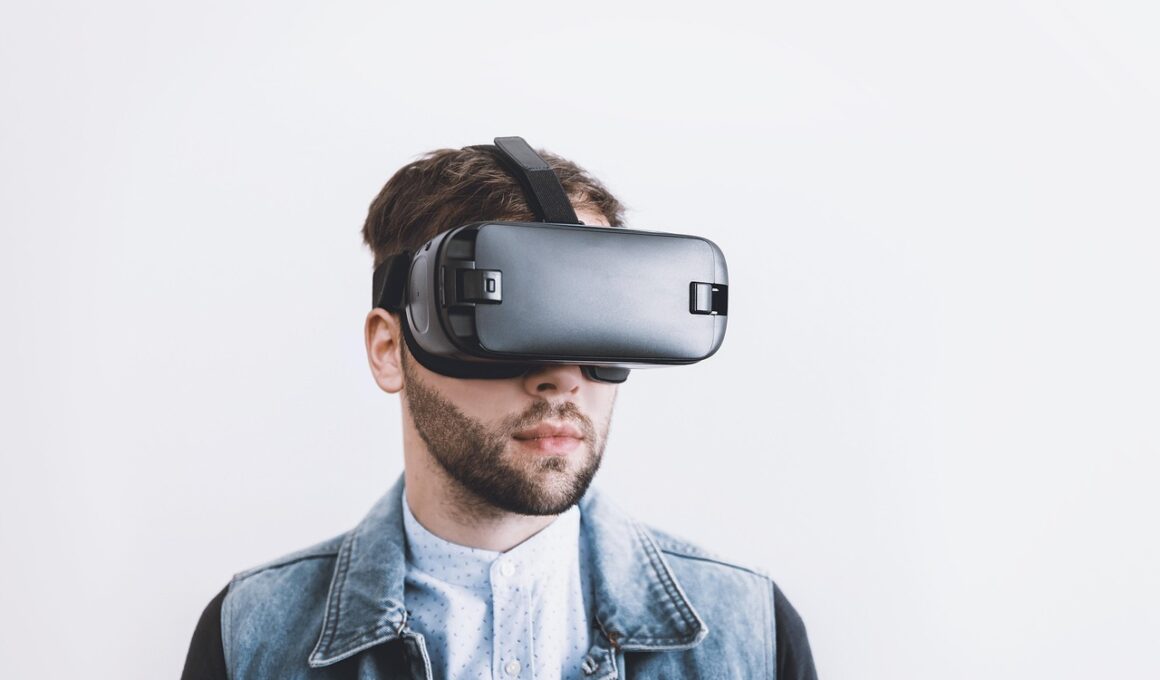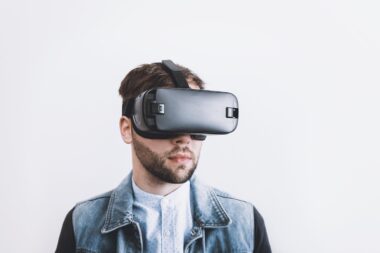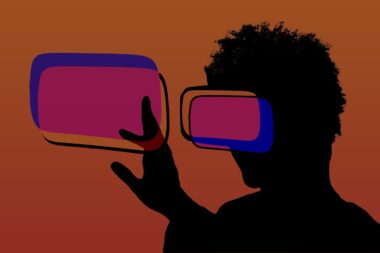Virtual Reality for Market Research: Unlocking Consumer Insights
Virtual reality (VR) has emerged as a revolutionary tool in market research, enabling brands to gain unparalleled consumer insights. By immersing consumers in fully interactive environments, brands can observe behaviors and reactions that traditional methods fail to capture. VR provides a realistic space for testing products, services, and marketing strategies, facilitating deeper understanding of consumer preferences. As brands integrate VR technology, they encounter fresh opportunities to engage their target audiences. During immersive experiences, participants naturally react, revealing authentic insights into their decision-making processes. Companies can gather valuable information about consumer perceptions, allowing for data-driven strategies. Furthermore, the depth of engagement in VR can surpass conventional surveys, where users might not express their true feelings. VR market research enables emotional connections and offers a platform to visualize a product’s effectiveness in a compelling manner. Lessons learned through these immersive insights can drive innovation, improve consumer satisfaction, and enhance brand loyalty. This transition towards virtual reality in market research signifies a broader trend, embracing technology to optimize the overall consumer experience and leverage analytics for future growth.
The journey of integrating virtual reality into market research presents unique challenges. While the technology has benefits, adopting VR requires upfront investment and appropriate technical infrastructure. Companies might need to train staff on VR tools to effectively interpret results and ensure seamless communication with consumers. However, the potential return on investment can justify these challenges when organizations harness the power of VR analytics. Data collection through VR can be significantly richer, providing more granular behavioral understanding than traditional methods. Amid this shift, participants often find the immersive experience engaging, increasing their willingness to share candid feedback. This leads to greater accuracy in identifying unmet needs and preferences. Marketers can leverage these insights to create tailored experiences that resonate with consumers. As brands tailor their messages based on these findings, the probability of successful engagement increases. Organizations that master the incorporation of VR will find themselves at a competitive advantage in understanding and connecting with their audience. This emerging trend indicates a significant change in how brands think about market research, combining technology with consumer psychology for effective strategies.
The Impact of VR on Consumer Engagement
Consumer engagement is evolving, thanks to virtual reality’s unique capabilities. The immersive nature of VR allows brands to create captivating experiences that resonate with their audiences. By employing VR in market research, brands can craft scenarios that simulate real-life situations where products or services may be used. This engagement fosters a strong emotional connection with the user, enhancing their understanding of brand values. Marketers have the opportunity to utilize VR storytelling, making scenarios memorable and impactful. For instance, brands can showcase new products in realistic settings, allowing consumers to visualize their future interactions. Furthermore, virtual reality helps brands step into the shoes of their customers, understanding what drives their decisions and behaviors. This deeper insight contributes to better product development, positioning, and messaging strategies. Organizations equipped with VR knowledge can refine their offerings in ways that align closely with customer desires. Engaging consumers through such innovative means transforms traditional market research approaches. Embracing VR technology will enable brands to foster deeper connections with customers, leading to enduring relationships that foster loyalty.
The qualitative feedback obtained from virtual reality experiences can also lead to innovative marketing strategies. By analyzing user interactions within a VR setting, brands can identify specific pain points and areas for improvement. For example, if users struggle to navigate a product’s features in a VR simulation, companies can re-evaluate the usability of their product design. Additionally, behavioral data collected during these immersive experiences can guide brands on how to optimize marketing campaigns. This rich repository of insights is invaluable when developing targeted advertising and promotional strategies. Businesses can harness VR to create segmented audiences based on behavior, enhancing personalized messaging. As a result, the accuracy in communication increases, leading to more effective campaigns and higher conversion rates. Moreover, the adaptability of virtual reality provides flexibility in testing various marketing tactics in a controlled environment. Companies can implement A/B testing through VR to gauge the effectiveness of different approaches without the risks associated with real-world execution. By rethinking traditional marketing paradigms, brands can utilize these insights to maximize their outreach and ensure positive consumer engagement.
VR in Product Testing and Development
Integrating virtual reality into product testing and development has shown promising results in recent years. By simulating real-world interactions with products, developers gain a clearer understanding of user preferences and pain points. This method allows for real-time feedback that can be incorporated into design iterations, helping companies create products that align with consumer expectations. Traditional testing methods often fail to fully emulate actual product experiences, limiting the quality of feedback and subsequently, the efficiency of development processes. Moreover, virtual reality enables brands to explore various product features and variations before launching them in the market. This leads to significantly reduced costs associated with physical prototypes and enables faster iteration cycles. Conducting virtual focus groups where consumers engage with simulated products can also uncover novel ideas that drive innovation. In this landscape where consumer needs are rapidly evolving, being able to adapt and respond to feedback is invaluable. Companies that leverage VR in product development processes can reach their product-market fit faster, reinforcing the importance of consumer insights in developing successful offerings.
As organizations continue to explore virtual reality for market research, privacy and ethical considerations become essential. Researchers must establish clear guidelines for how consumer data is used during immersive experiences. Maintaining transparency with participants regarding data collection is vital for building trust. This trust not only affects consumer willingness to engage with VR studies but also enhances the authenticity of the insights gathered. Ethical frameworks must also address concerns surrounding user consent, ensuring that participants fully understand what their engagement entails. Furthermore, as VR technology evolves, protecting consumer information from potential misuse or breaches is a priority. By prioritizing ethical considerations, brands can cultivate a positive reputation in their research efforts, ultimately attracting more participants and yielding richer data. Companies should actively communicate their commitment to ethical research practices to encourage consumer confidence. In doing so, they can unlock additional insights while reinforcing the social responsibility aspect of their innovations. As a result, embracing ethical marketing practices can ultimately lead to improved relationships with consumers, creating a foundation for long-term success.
Future Trends in VR Marketing Research
Looking ahead, the future of virtual reality in marketing research appears bright, with numerous innovative trends on the horizon. As VR technology continues to advance, creating more affordable and accessible experiences for brands will promote widespread adoption. The integration of artificial intelligence with VR can also enhance the insights gathered from market studies. AI algorithms can analyze behavioral data extracted from VR interactions, providing brands with deeper analysis and predictions. Additionally, advancements in VR hardware will improve the overall user experience, making it more compelling for participants to engage. The rise of augmented reality (AR) will also play a significant role, allowing for hybrid experiences that can complement VR insights. Companies may find ways to merge AR with VR, creating even more dynamic environments for consumer interaction. Further developments in immersive storytelling techniques will ensure that brands continue to provide engaging and impactful experiences. As brands anticipate changes in consumer behavior, the need for agile market research solutions becomes vital. Embracing upcoming trends to stay ahead will enable companies to maintain relevance in the evolving landscape of marketing.
In conclusion, virtual reality presents a groundbreaking avenue for unlocking consumer insights in market research. This innovative technology offers brands the ability to gain detailed understanding and engagement with their audiences in ways previously unimaginable. The immersive capabilities augment traditional research methods, highlighting the importance of emotional connection and real-time feedback. While challenges regarding implementation and ethical considerations exist, the potential rewards far outweigh these obstacles. As virtual reality gains traction within the industry, companies willing to embrace this change will position themselves for success. By utilizing VR for consumer engagement and product testing, brands can develop solutions that cater explicitly to customer desires. The future of marketing research will undoubtedly be shaped by advancements in virtual reality and related technologies. Therefore, businesses must equip themselves with the knowledge and resources needed to navigate this evolving realm. Continued investment in VR innovation will ultimately enhance brand awareness and drive loyalty among consumers. As immersive experiences become more prevalent, organizations that adopt VR in market research will foster deeper connections with their users, leading to enhanced business outcomes and sustainable growth.





